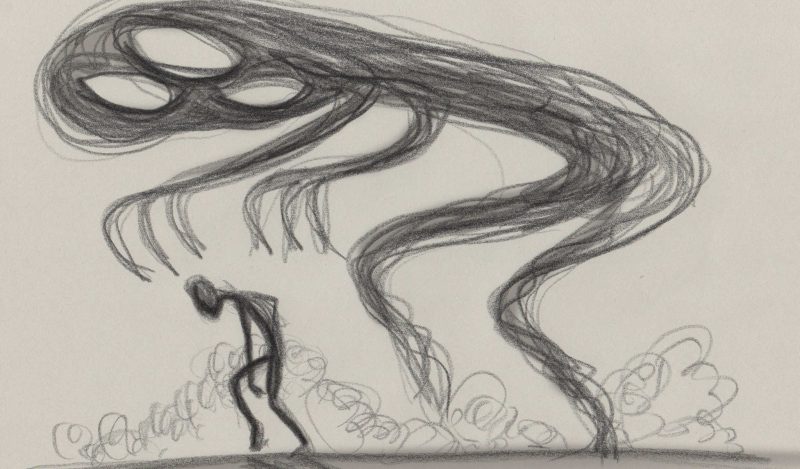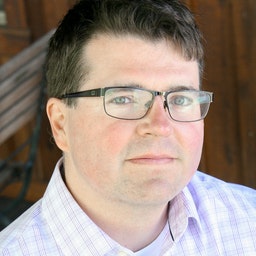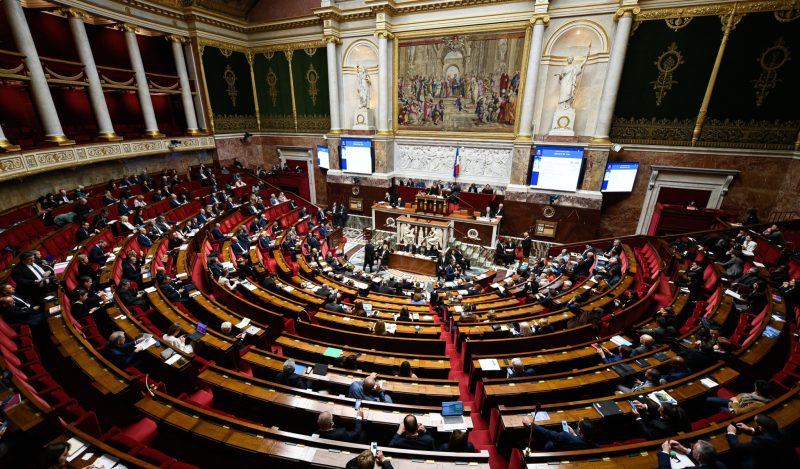As a continuing part of my book research, to be published by Brownstone Institute, I recently talked with sociologist Dr. Frank Furedi, author of How Fear Works: Culture of Fear in the 21st Century, about the continuity of the culture of fear in the COVID-19 pandemic response, and why idiotic cultural movements almost always originate in California. Edited for clarity and relevance.
ST: I’m very happy you agreed to talk to me. I know you’ve got a lot of projects on the horizon here, and you seem to have a lot of different interests. But I want to go back and talk about your book How Fear Works. I confess I haven’t seen a lot about what you’ve said about the pandemic, and reading your book I realized there’s a lot of themes there that are absolutely perfect for how to explain the pandemic response—the things you wrote about how we look at risk and fear. I want to go back and talk first about your interest in studying the definition of fear and how you think it has changed.
FF: I became interested in—not so much fear—but the way that the culture around fear works which is really the specific way in which Anglo-American societies have come to regard risk and come to regard threats and the tendency towards what I call worst-case thinking all the time in relation to just about any dimension of human experience. I was interested in the way that fear was focused on children and then kind of expanded into other areas and it became clear to me that if you look at the narrative around children or on terrorism or on the environment, although they appear totally different, structurally they have a very similar pattern in the language that is used and in the way that the problem is framed. So you’re only seeing the tip of the iceberg, the fact that “this particular threat is far greater now than ever before” and there’s kind of a casual way in which things mutate into a kind of existential threat. So problems that are technical in nature, almost immediately become a matter of life and death or even technically human existence. So that basically means that by the time you get to the pandemic, the narrative was already in place in terms of the ease with which public health became politicized and politics became medicalized because there’s already a disposition to see human beings as powerless to be able to deal with stuff. And we had this very kind of fatalistic reaction which in the way that fear is presented where you’ve basically reorganized the world around the movement of a virus—the virus determined our lives, our economy, our education system, whatever. So I kind of see a line of continuity in all this.
ST: I guess I would put it in different terms, I would say the cultural environment enabled all of this. Because any leader wants—they were thinking “what am I going to do to show that I’ve acted and that I’ve done something, that I’ve taken”—it doesn’t have to be decisive action, but at least the appearance of it—and “we’re going to eliminate risks to zero.”
FF: That was clear in Britain, where initially the government had the right instincts about the pandemic—you know how they reacted—they weren’t going to do what everyone else was doing. Then the media went absolutely hysterical, and so they basically supported anybody that wanted a lockdown, putting pressure on the government, essentially it just changed almost overnight and gave into this pressure, because they were afraid if somebody died, they would get the blame. And afraid that they would become really unpopular. And as you know, there is the emergence of what I call lockdown lifestyle, where even today a lot of people are positive about being quarantined and not having to go out and it’s really brilliant. I don’t have to come teach my students and all the rest of that kind of passive reaction.
ST: All the things you can protect yourself from—car accidents and any sort of risk—just stay at home all the time and work on Zoom. I think some of this is due to—and you talk about this in your book about—people dealing with uncertainty. Why are people especially bad at it now, compared to previously?
FF: The way that uncertainty becomes manageable is by turning risk into a calculable phenomenon, and that requires a greater knowledge—greater confidence in knowledge and it requires greater confidence in human societies’ capacity to come up with a solution and I think what’s happened is that—whereas historically in modern times uncertainty was regarded as something that is also exciting—it wasn’t just an ethical problem. It was regarded as something that provided people with opportunities to make their own way. Now it’s regarded as just bad, as negative altogether. And therefore uncertainty becomes this kind of problem that you want to shy away from, to run away from rather than confront. I think that this been held by the development of worst-case thinking or what in the book I call possibilistic thinking, that probabilities—you can no longer work with them. You can just assume the worst, which is anything that possibly could go wrong, probably will go wrong. And that’s most clearly expressed through the precautionary principle and environmentalism. I mean health as well—the whole public health has fundamentally changed from when it began.
ST: And you think the pandemic just sped things up from something that was happening anyway—it’s not a sea change in terms of the pandemic itself—but it was just going in this direction and it went into hyperdrive?
FF: Obviously, when things accelerate the way they did during the pandemic and when preexisting trends become intensified, that could represent a major change, or at least it can be perceived, which is why people so easily talk about the new normal. Or the great reset, because it appears to them that something unexpectedly transformative occurred, not realizing that these trends have been in existence for some time. But I think that it has had a profound effect, because it served as a mirror that society could see the problems that were already there and it elevated everything to a different level.
ST: How come people didn’t see the possibility of collateral damage to things that we were doing? Is it just a matter of instantaneous short-term thinking versus long-term thinking? There’s obviously a trade-off in anything we do.
FF: Yeah, there is. It is an interesting phenomenon that—despite that fact that a lot of people who could see that the economy was going to unravel and you’re going to have a really big, major distortion in a particularly a level of global economic affairs. And there’s collateral damage to children’s education and the rest. There was this sense of paralysis, almost as if everything had to be abandoned in order to limit the damage that the virus could do, so that is kind of an extreme form of fatalism where fate acquires this preeminence in a highly medicalized form.
ST: The idea of uncertainty—people can’t deal with it—they try to give themselves certainty, even if it’s just the appearance of it. Then you have people who are willing to challenge this illusion of certainty, they’re skeptical of fatalism. But now skepticism is a bad word. What are your thoughts about that, about how people were treated who were skeptical of the way things were going?
FF: I’ve written extensively on the pathologization of skepticism. You know the way that climate skeptics or in Britain, the Euro-skeptics—any form of skepticism—which used to be an honorable, intellectual orientation, quite essential for science—just turns into what they call denialism and turns into this quasi-pathology that you have to expose and drive out. That’s a big problem because it closes down debate and discussion. But the other problem is that there are people who start as being skeptical and then adopt a conspiratorial interpretation of what was going on. Because they could see that something was wrong, they weren’t getting the facts or the truth. And they kind of flipped over, and you have this very caricatured debate on the one hand, yet these people became antivax and, you know, the whole thing was an invention, and the virus didn’t exist, and you had the public health lobby and mainly the political class culture, all the elites on one side. So it was a very unproductive discussion with very few sensible people to point out the need not to subordinate life, not to allow public health to become everything.
ST: If you outlaw reasonable debate, you get an unreasonable debate, and you have a situation where you just use the term denialism for not just conspiracy theorists, but for anybody that disagrees with you, you can’t have a reasonable debate.
ST: You have another part of your book that I really like where you say the term “research shows” has a character of ritualistic incantation. What are your thoughts about that term and how it was used in the last two years?
FF: But it’s been a bit longer than two years and it’s got this quasi-religious quality—it’s almost like “as God said,” and the other expression that is used is “according to the evidence.” And there’s this assumption that with “research shows” is not just a set of facts but also a prescription as to how to lead your life so it enters into the domain of behavior, morality, and all of those things come out of it. And it is invoked quite regularly as a way of avoiding a discussion about what you want to do in this particular context, because whatever “research shows,” what’s important is what you make of it in a particular moment in time. How your interpret it, how you react to it. That’s not something that research shows, it’s something that comes about through discussion, debate, and deliberation.
ST: The idea of scientific consensus has become completely unrealistic—people demanding answers very early—jumping on preprint studies that are just in isolation and you can’t say that one particular study is definitive when people don’t really understand that scientific consensus takes years to build. And it has to happen through a number of disinterested people who may disagree on parts but eventually come to some sort of agreement. I think that’s been thrown out the window.
ST: I like to use the term “The Appearance of Safety,” and some people call it “pandemic theater,” but I think the politicians and their decisions are all downstream of the culture. They are just reflecting what the culture is when people demand certainty—they have to give it to them. And when they can’t give it to them, they give them the illusion of it. Because that’s part of the culture. I think that’s why a lot of things were done were giving into demands of the public and this sort of safety culture has now taken the form of pretty much everything. There’s students in colleges that can’t be challenged about their opinions, and now we’re going full circle and talking about infectious diseases as well.
FF: Yeah, although the culture didn’t just drop out of the sky. It was the accomplishment of interest groups, politicians, all these people for whom this became a convenient way of making sense of the world and is an interesting—in my own lifetime—the last 25, 30 years how you can see the steady expansion of the issue that safety encompasses so that safety then becomes increasingly subject to concept creep and it acquires some momentum, it’s something that a lot of people become complicit in promoting. People need to be socialized and educated into thinking this particular way. Look at the way that children learn in schools and the way they are brought up and the way they are told they are vulnerable and powerless and we have special needs and all these different things, so they are literally treated like patients rather than people with a potential for independent behavior. Then it’s not surprising that when they become young men and women that they become very conscious of the absence of safety, even in in a very safe environment. The idea that campus safety has become this big issue. Campuses are the safest place in the world, yet it’s like the jungle where you take your life into your own hands.
ST: I guess what you’re saying is that leaders can take advantage of this—this is to their benefit—they can show they are doing something that could show they’re taking action, and so this is sort of a self-fulfilling, perpetual cycle of sorts, trying to find more things that you can “be safe” about. How do we get out of that cycle? Is there any sort of cultural backlash that could happen?
FF: I don’t think cultural backlashes ever work. The backlash is never as strong as what it is reacting against. That’s been the problem for the last 20 or 30 years. They get really pissed off and they say enough is enough. But first of all, you need a radical redefinition of what a human being is. Second, we need to change the way of bringing up kids and socializing them, because every generation I know, the younger the generation, the more risk-averse they become. The more they become subjected to and immersed in this “safe space” outlook. And that’s not because of anything to do with their personality, it’s just the way they are educated and socialized and almost rendered powerless by the education system. Then it’s further reinforced when you go to university, so I think that’s a really important area, because you have to challenge where all these really bad things kick in really early in life. So yeah, it’s a big job and people tend to often underestimate just how widespread this is, and how much cultural support it has.
ST: That leads perfectly into the next thing I wanted to ask. Is there some place in the Western world that eschews this culture, that has managed to avoid it, or at least lessen this kind of safety, fear culture?
FF: Every since I’ve been studying it, the way I see it, it always begins in California.
ST: <laughs>
FF: Seriously, all these idiotic things always begin there, and then they get exported to the Eastern seaboard, then the rest of the United States becomes implicated, and then goes to Canada. Six months later, those sentiments are imported into England, Britain, and eventually Northern Europe and then gradually maybe a year or two later, they move into southern Europe and possibly into East Europe. But there is a temporal differentiation, the Anglo-American world is the worst and there are differences within that. But the thing is, because of the role of American soft power globally, it’s even begun to influence middle class people in China and India, so if you go to Shanghai or Mumbai, you’ll find, especially the highly educated people, and that children are like poor imitations of a San Francisco environment. It spreads through Netflix—all of these different things and cultural models.
FF: I’ve spent a lot of time in Italy and east Europe. I spend three months every year in Italy, three months in Hungary. It’s part of my work. And it’s better there, it’s nice to see a more relaxed environment. But you can really see even there it’s becoming more and more prevalent. But America is in a class of its own. It is unbelievable when I see Americans, the way they behave. I made this point in the book, you know, I’m in Brooklyn and I’m talking to some old friends, and I say, “I’m going to go get a bottle of wine,” and they say, “Stay safe, Frank.” And that’s the first time I heard that expression. As if going a couple of blocks is going to be a threat to my existence. Just that whole consciousness profoundly changes the American personality from kind of a rugged individualism into something very, very different.
ST: Yeah, absolutely. I’m signing off on a telephone call with someone in a different state about some business thing I’m taking care of, especially during the pandemic, people would sign off as “OK, be safe.” And that would drive me crazy. And also, what I like to say is that it’s an unofficial American motto that “anything that can be done should be overdone.” I think that’s something we are good at, something that might in small amounts fairly useful and increasing it to an amount that is completely counterproductive.
ST: What you say about things starting in California and spreading around the world. Is there some way to quantify that? Is it just your opinion, or can you look at Google Analytics and find out?
FF: I’m sure you could. I remember when I wrote a book called “Therapy Culture,” you notice all of this bollocks about self-esteem takes off in California, I just noticed quite often concerns particularly about interpersonal themes often seem to emerge there. If you were to make a list of all these different new panics I’m sure you could work it out. I once did a research project with an American research sociologist called Joel Best, and we’re looking at this, the invention of a social problem. Because it usually travels from America to Europe, the only thing that was different was when I did a study on the invention of the idea of bullying. What you have before you were born, bullying used to be only what children did to each other. There was no bullying problem. And then it becomes this huge problem with kids and then it becomes this major problems in the workplace among adults. You infantilize all these people. It began in Sweden and Switzerland by the trade unions there, basically using bullying in the workplace as a way of increasing the role of human resources and then it went to America and was taken up fairly fast. That’s the only one I could think of that began in Europe and everything else was in the other direction.
ST: Yeah, that’s really interesting.
FF: The other example in California, is the satanic abuse hysteria in the 1980s. I think one could look at quite a few of these things.
ST: So do you think Hollywood is the major pusher of this, because that’s in California?
FF: I think it has to do with the fact that, until very recently, people moved to California at a high level of recently established people, you know with a very kind of mobile, uprooted, fragmented population, but I think there’s gotta be something else. Maybe it’s an area where the more culturally elite individuals are more established.
ST: It’s interesting that you mentioned Sweden, because I tend to think of the Nordic countries, in terms of their response to the pandemic, were much more lax than the rest of Europe and the Anglosphere. I feel like that’s a reflection of their culture. They emphasized personal responsbility. They did not act like their children were in grave danger. They kept schools open—even places that did close up didn’t close very long. It makes me think back to when I was in Denmark a few years ago, and I gave a research talk there, and I had a dinner with a collaborator, and he brought up the instance of a couple from Denmark that had come to the United States and were having dinner in a New York restaurant, they had their baby in a stroller, and they left the baby outside in the stroller on the sidewalk so that he could look at people walking by. And they were arrested for endangering their child for something that was a very common practice in Denmark. They were still puzzled as to why Americans are so obsessed about safety and crimes against children even though the statistics didn’t bear it out. You talk about bullying coming from Sweden, but at the same time, those countries seemed to have a little bit of a different view. So if you could give me your thoughts on that.
FF: No, I think you’re right. My favorite country there is Denmark. Denmark is far less risk-averse. Norway is really politically correct, obsessed with the environment. Sweden is in the middle. Finland is alright. The Baltic states, Estonia, are OK. Sweden used to be much better than it is now. It still has obviously not implicated the same kind of safety culture, although I think that things are changing for the worse. And you have to remember that Sweden’s reaction to the pandemic was in a large measure due to the behavior of one person. The chief medical officer refused to roll over, and he really held out and had a lot of authority. So it’s easy to imagine in America someone like Fauci being like him, he might’ve made a big impact. And he set a very good example, and of course he did get a lot of criticism, especially after four or five months, and he held his own. The good thing was that Sweden had a very important role because there was a sufficient mass of people in Sweden who supported that decision and refused to cave in to all the pressure. All the criticism Sweden got from everywhere in Europe was just amazing.
ST: Right, and I feel like it was much worse from outside of Sweden than it was from the inside and you could always read stories about people who criticize things within the country. But I feel like for the most part people did support the lack of shutdowns and school closures.
ST: You are a sociologist, but it seems like you don’t hold traditional views of most sociologists, in that you value individual rights more than sort of a collective good, so I want to know what led you down this path, and also, how your work is received by your peers.
FF: Until recently, quite well. I’ve got a pretty good reputation in Britain in terms of the academic millieu. More recently, it’s been much more negative, a lot of hostility to what I’ve been writing about. And there are parts of the world where my writings are really liked, like Finland. I just came back from there, they just translated one of my books there. Italy, Holland, Australia, places where it’s doing really well. But you have to remember that what I’m doing is going against the grain of dominant culture because I also write about political stuff and particularly at the moment I’m doing a lot of stuff on the culture wars and the way in which things like identity politics, transgenderism and all these things are used in a pretty horrible way to mess up kids and so I’ve become quite interested in that. Obviously, that’s not very popular among my peers. But I am making an impact on a wider public, and I have a certain following. But the trouble is that the way things are polarized, you either have the risk-averse, identity, safe space side. And then you have the opposite, which is which almost a caricature, almost ultra-reactionary in the way they respond to that. There really isn’t what I would call an old school liberal-minded approach towards the world that tends to be fairly limited. It’s very exciting to live in exciting times if you can offer an alternative view of the world.
FF: For example, I wrote an article—there’s a magazine called Society in America—on social distancing, developing my ideas in relation to that. It had a huge impact, even amongst peers. So some of my books have done quite well, but it is going to be very much a minor opinion for some time to come.
ST: So you’ve answered how your beliefs are received by your peers, but you didn’t quite get to the “origin story,” like how did you get to the point where your beliefs have driven you into sociology and your background.
FF: It’s been kind of a journey, because I used to be involved with the far left when I was I student, which I really enjoyed, I learned a lot through that process. At a certain point in the 1980s, I realized that the left-right distinction was really unhelpful, and that in many ways the really big issues of our time weren’t what the left used to argue but very much about taking a stand on individual rights, taking the values of tolerance and freedom much more seriously and without thinking about it—I remember waking up and I realized that my views had gradually moved in a different direction, as did a lot of people I got involved with on the left earlier on—they all drew similar conclusions. They all went off in different directions but more or less I’m kind of what I would call a “responsible libertarian.” I hate to use that label, because there are things that I wouldn’t call myself, like American (libertarianism), like Reason magazine. For example, I haven’t got the same faith in the market mechanism that they do, I think that needs to be a little bit modified. But on personal matters and on terms of human behavior and freedom-related issues I’m a free-speech absolutist. That’s what shifted me in my direction. I remember I used to get denounced by the left, because in the 1970s, I was the only university professor in England against people who wanted to no-platform racist or no-platform fascists. I said if they are racist or fascist then find a way to argue against them, rather than find a bureaucratic method to shut them down. That’s when I realized I wasn’t like them.
ST: Basically, once the left abandoned their free speech adherence you migrated away from that?
FF: Very, very fast.
Published under a Creative Commons Attribution 4.0 International License
For reprints, please set the canonical link back to the original Brownstone Institute Article and Author.









